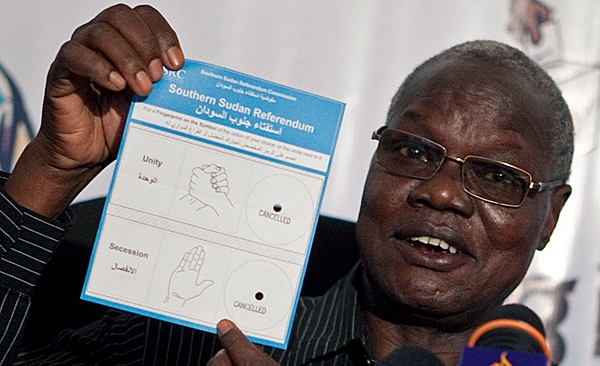South Sudan judges demand resignation of chief justice

April 21, 2017 (JUBA) – South Sudan government judges and lawyers declared an open-ended strike, demanded the resignation of Chief Justice Chan Reech Madut and wages increments.
The assembly of judges and justice made the declaration in the capital Juba.
“The General Assembly of Justices and Judges voted unanimously to enter into an open strike until the following demands are fulfilled; the honourable Chief Justice Chan Reech Madut must resign, provision of a car for justices and judges for transportation, provision of stationery and creation for a conducive working environment. Creation of courtrooms to each and every judge,” said Geri Legge, a Justice of the Court of Appeal after the general assembly meeting.
The strike begins on Monday, April 24.
The judiciary senior officials accused Chief Justice Chan of failing to follow up on promises made last year to increase wages and improve working conditions. Justices and judges receive monthly salaries between SSP 8,000 and SSP 12,000.
The judges and justices are among highly paid government employees but the depreciation of South Sudanese pound against the United States Dollars means their wages are now less than $50 per month. $1 sales for SSP 180 in the black market in Juba on Friday. The local economy is in a free fall and prices for basic commodities have skyrocketed in recent months.
Chief Justice is appointed by President Salva Kiir and it is not clear if he will act to resolve the judicial crisis. Last year, a similar strike was called off within a week after the government promised to address the conditions set forth. Most of those pledges, according to judges, are never met.
In a statement released on Friday, 21 April 2017, the judges call for fulfilment of better working conditions, increased pay; six months leave with pay, three months for Christmas and Easter.
The release demands the enactment of justices and judges pension law, provision of identification cards, promotion of the judges and appointment of more judges in the country.
The reasons for these demands, the statement argues, are to improve the provision of services.
“Finally, the rationale behind our demands is an order to deliver good service to people, address the backlog of cases and also strengthening of the independence of the Judiciary of the Republic of South Sudan,” the statement stressed.
(ST)
